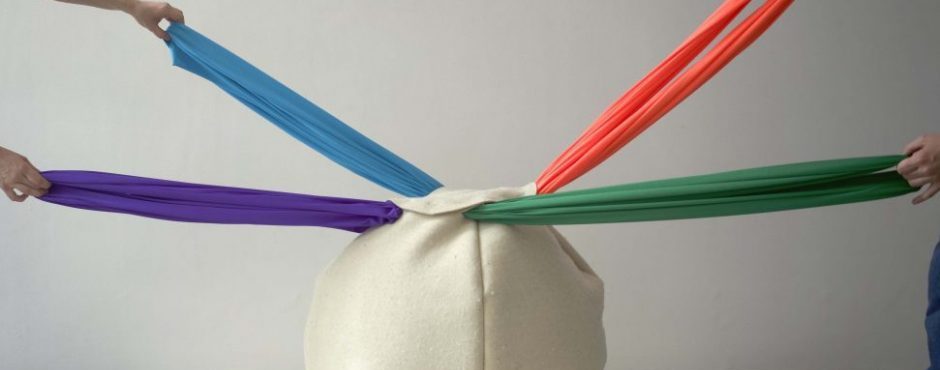The session began with a creative icebreaker. We were spread across four tables, and we selected postcards that resonated with us and explained our choices to the group. My selection – a serene sea scene with an undercurrent of lurking danger, with broken coloured streamers floating around – mirrored my love for the sea and the sense of uncertainty I feel navigating my current role at UAL. Hearing others explain their choices provided insight into their perspectives and artistic practices, fostering a sense of community and shared purpose.
We transitioned into a timeline activity, exploring pivotal moments in higher education (HE) history and their impact. Reflecting on these events highlighted the delayed nature of systemic reforms, sparking a shared frustration about the pace of change. Later, group discussions around social justice were lively and uncovered shared understandings of equality, equity, and representation while emphasising the importance of considering marginalised perspectives and advocating for systemic change.
These were particularly relevant to my teaching context. Balancing the demands of teaching, research, and student support within limited contractual hours (3 days a week) often feels overwhelming. This year, the pastoral care aspect has been especially challenging as I navigate the complex needs of diverse students with little formal training. I strive to create an inclusive learning environment by adapting resources and offering flexible support, but systemic constraints often hinder these efforts.
The importance of inclusive and positive/encouraging language in teaching, highlighted during our discussion of task 1’s assigned readings, where we all reshuffled around five tables and grouped with peers assigned to the same reading, resonated deeply. I frequently grapple with how best to communicate effectively, positively and inclusively, especially in feedback or critique scenarios, where I noticed most of my students lack engagement, I guess, primarily because of language barriers around understanding and communicating.
We broke to have lunch and regrouped around the now five tables. I remained seated in the last seat I moved to for task 1. We were given a one-page reading on the “charismatic lecturer” and discussed this again together among the whole class, reflecting and debating lively about whether we sympathised with Stephanie or Max more and why, what stood out in the text etc., then moved to look at the handout showing the dimensions of the Professional Standard Framework, in particular the highlighted criteria for descriptor one, and were reminded that TPP (unit 1 of PGCert), is accredited against these criteria enabling us to gain AFAHE when completed. Lastly, we were given an example of a case study but did not do the mind map on the slides, so we discussed the TTP Checklist more than we probably should have done :).
Moving forward, I aim to apply the insights gained from this session to refine my approach to social justice in teaching by a) expanding my knowledge: to inform my practice, I will delve deeper into the theories of pedagogy and intersectional social justice introduced in the PGCert course, b) enhancing inclusivity: continue prioritising inclusive and thoughtful language in all student interactions while exploring additional ways to adapt resources to meet diverse needs, c) seeking support: advocate for systemic improvements, such as access to lecture recordings, ergonomic, flexible, adaptive and sensory inclusive teaching spaces, and manageable student-to-staff ratios, d) professional development: explore training opportunities that focus on supporting students’ socio-emotional well-being and more effectively managing pastoral care demands.
Despite systemic challenges, this session underscored the importance of fostering a just and equitable learning environment and reflecting on practising a fair, just and inclusive feedback tango. By building on these reflections and advocating for change, I hope to better support my students and my own professional growth.
Lastly, I loved meeting new colleagues, hearing about their experiences, and making new connections. Knowing that other colleagues experience and feel the same about specific topics and aspects of working at UAL is comforting, and it makes me look forward to the next session! I’m glad I was offered the chance to do this last year 🙂
(Total word count: 668)
